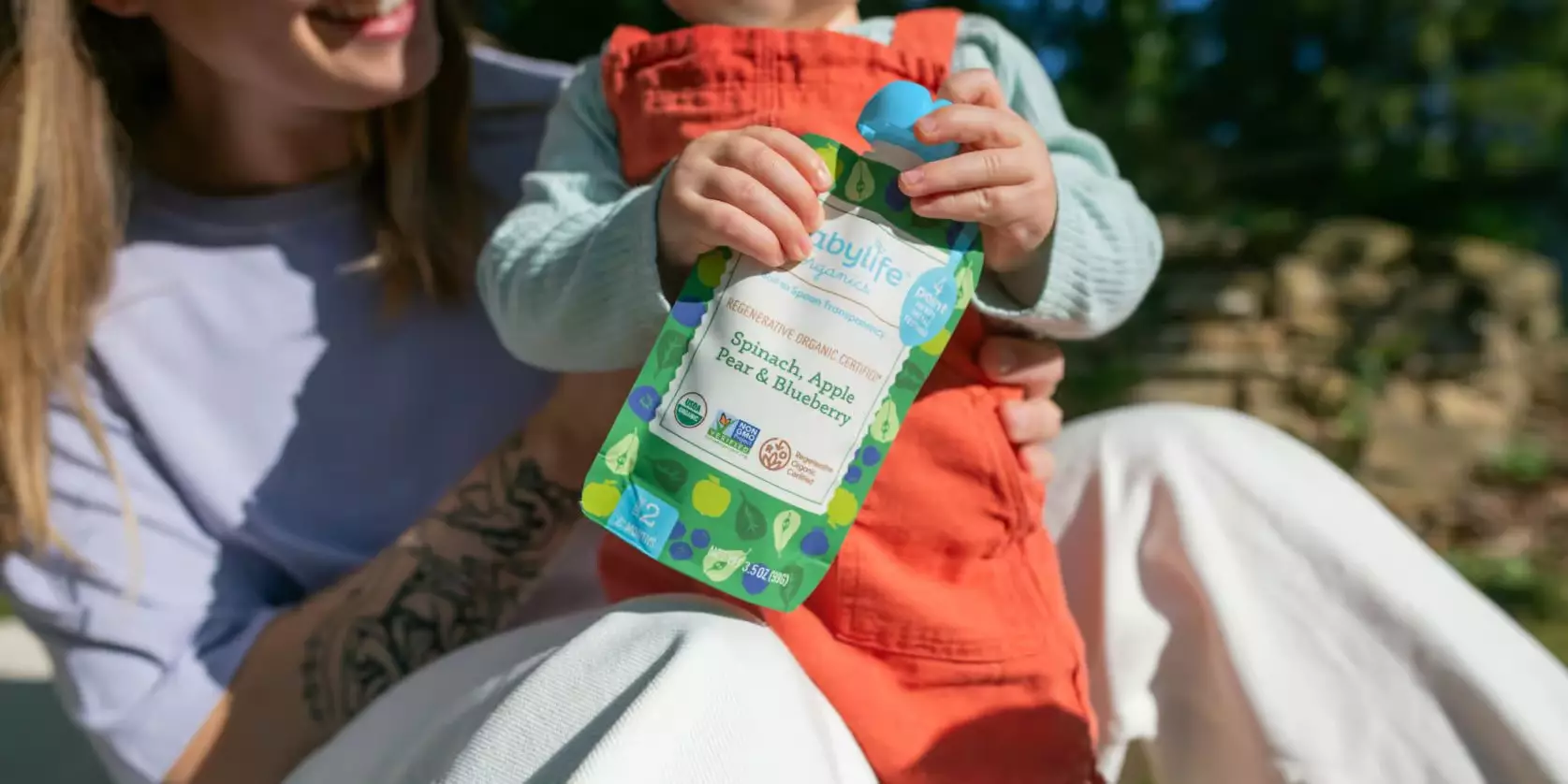In a landscape riddled with health concerns, the nutrition we choose for our babies warrants our utmost attention. Toxic heavy metals—lead, arsenic, cadmium, and mercury—can infiltrate baby food, both store-bought and homemade. These contaminants pose significant risks to neurological development in infants. Dismayed parents face an uphill battle: how can you shield your little ones from these harmful substances? With current reports revealing alarming statistics about heavy metals in baby food, a more profound solution is required.
The stark reality is that traditional baby food brands have not only failed to provide transparency but also lack rigorous testing protocols. Many parents are unaware that the food labeled as “organic” or “natural” could still harbor these toxins. This crisis in infant nutrition demands action, not just reliance on outdated practices.
Introducing Babylife Organics: A Game-Changer
In light of these concerns, a new player has entered the realm of baby food, promising to turn the tide: Babylife Organics. This brand is pioneering the way forward by publicly disclosing their heavy metal testing results, which can be accessed through QR codes on each product package. With this level of transparency, Babylife empowers parents to make informed choices, turning the tide on the industry’s current opacity.
By employing regenerative farming techniques, Babylife prioritizes soil health, which is the cornerstone of producing safe baby food. Richard Harford, CEO of Babylife Organics, emphasizes the exemplary standards of their sourcing from Türkiye (Turkey), where the soil has been cultivated sustainably for generations. By utilizing lands with minimal contamination, they are not just feeding babies but contributing to a healthier planet.
Understanding the Testing Process
The crux of Babylife’s commitment lies in their innovative 4-point heavy metal testing strategy, which measures contaminants at four critical stages: soil, raw ingredients, prepared ingredients, and final products. In a landscape where no federal standards govern heavy metal levels in baby food, this rigorous testing approach sets Babylife apart from its competitors.
Most baby food manufacturers may only test their products at the end of production, which is hardly adequate. Babylife, on the other hand, conducts annual soil tests and rigorous checks of raw ingredients from each harvest, ensuring that any potential contamination can be traced back to its source. This proactive stance significantly enhances the safety of their products.
Experts echo the urgency of this matter. The American Academy of Pediatrics has highlighted that even low-level exposure to heavy metals can lead to long-term cognitive impairments in children. In a market devoid of stringent regulations, Babylife’s call for adherence to internationally recognized standards like those set by the European Union heralds a much-needed shift towards consumer safety.
A Commitment to Transparency and Education
Beyond just delivering safe food, Babylife prioritizes consumer education through its approach. Each product features a QR code that, when scanned, links to detailed testing reports highlighting heavy metal levels based on specific lot codes. This level of transparency fosters trust between the brand and parents, something that is sorely lacking in the industry.
Consumers are encouraged to engage with the data, digging deeper into the specific levels of heavy metals tested. Rather than a simplistic pass/fail result, they receive comprehensive information about how Babylife’s offerings measure against the most stringent safety standards.
This engagement encourages a culture of awareness, compelling parents to demand accountability not only from Babylife but also from other brands. The ripple effects may influence governmental and regulatory bodies, potentially pressuring the FDA to reassess and enforce safety standards in baby food production.
Setting a New Industry Standard
Babylife’s innovative practices aim to prompt a cultural shift in the baby food sector. In an industry often riddled with shortfalls regarding ingredient safety, their forward-thinking methods could serve as a benchmark for competitors. Harford’s ambition is straightforward: inspire others in the sector to adopt similar heavy metal testing protocols and prioritize transparency.
As parents become more vigilant about what goes into their children’s bodies, the industry must respond. Babylife’s products, featuring USDA Organic certification and devoid of additives or harmful preservatives, present a compelling case for safety and integrity in baby food.
As growing concerns about heavy metal contamination continue, Babylife Organics stands at the forefront of addressing parental anxieties surrounding infant nutrition. Their laissez-faire approach to heavy metals sets a precedent that could ultimately reshape the future landscape of baby food, ensuring that feeding our newborns is both nourishing and safe.

